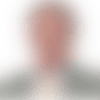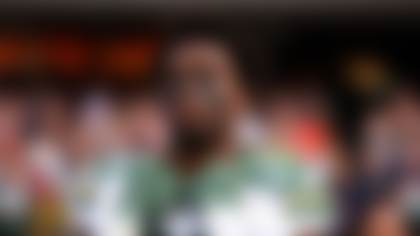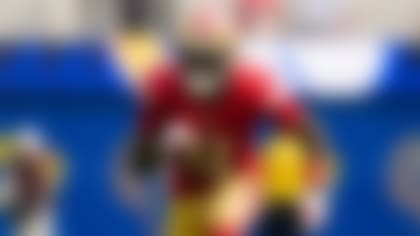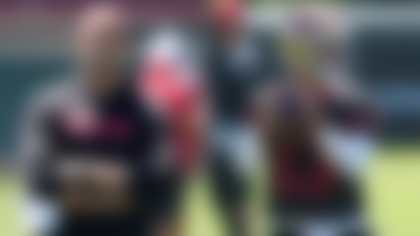In the zero-sum world of the NFL, where every team's victory is accompanied by another team's corresponding loss, the line between good and not good enough can be exceedingly thin. And when a perennial power starts declining, it can be difficult to find the tipping point. When did this good team become ... not good?
That question is being asked this week in New Orleans, where the Saints are 0-2 and the sky is falling on the Superdome. In addition to his reduced productivity of late, Drew Brees was diagnosed with a bruised rotator cuff after the Week 2 loss to Tampa Bay and had an appointment with Dr. James Andrews, which is never something you want on your social calendar if you're a football player. NFL Media insider Ian Rapoport is reporting Brees could miss multiple games, though the quarterback saying Wednesday he's "pretty confident" he'll play Sunday.
As recently as the 2013 season, the Saints went 11-5 and won a road playoff game, going into Philadelphia and edging the Eagles 26-24. But they fell to 7-9 last year, and general manager Mickey Loomis shook up the roster over the offseason (dealing away tight end Jimmy Graham and off-loading wide receiver Kenny Stills after a promising second season). One gets the sense Loomis is trying to be Patriots-esque with the team, figuring that as long as the Saints have Brees, they can play Moneyball with the rest of the roster. The early returns have not been promising.
Here are a few prominent areas of concern:
Personnel
This game has been, is now and always will be about personnel. In their 2009 Super Bowl title campaign, the Saints were loaded -- particularly on offense -- with both talent and experience. The offensive line was as good as any in the game, with Jonathan Goodwin at center, Carl Nicks and Jahri Evans at guard, and Jon Stinchcomb and Jermon Bushrod at tackle. That made everyone around them better; Brees had more time in the pocket, while the ground game had bigger holes to work with. New Orleans was deep at wide receiver with size and speed. Tight end/matchup problem Jeremy Shockey complemented multi-talented running backs Pierre Thomas and Reggie Bush.
Now the line is patchwork. The Saints scored talented center Max Unger from Seattle, but they had to give up Graham to get him. Marques Colston remains at wide receiver, but he's 32 years old. Brandin Cooks, of course, is a very promising second-year pro, but the Saints have nothing at tight end to compromise a defense and give Cooks more room to operate. They are relying heavily on the productivity of Mark Ingram at running back. Yet, behind this subpar line, Ingram is averaging an anemic 3.1 yards per carry -- easily the lowest figure of his career.
The quarterback
All of those personnel issues we just discussed put more pressure on Brees. And even before news broke of Brees' current shoulder issue, many folks were speculating that he's washed up. Rumors of Brees' demise are exaggerated and premature. He is the youngest of the "Big Three" future Hall of Fame quarterbacks in his age group: Brees is 36, while Tom Brady is 38 and Peyton Manning is 39. He takes great care of himself and has the complete support of his coach.
That said, the big-picture problem -- the issue that goes beyond the current shoulder ailment -- is that Brees has thrown 650-plus passes in seven of his past eight seasons. Brady and Manning haven't come close to putting that kind of wear and tear on themselves. And that's not just hard on your arm -- the more you drop back to pass, the more hits you're going to take. The current issue stems from a shot to Brees' shoulder by Bucs defensive end Jacquies Smith while the quarterback was in the midst of his throwing motion in the second quarter on Sunday.
Brees' biggest problem has been that, without the supporting cast, he feels like he has to do it all on his own. This has caused him to force some passes that he might have been able to get away with in the past, with a stronger arm and better receivers.
Identity
When the Saints won the Super Bowl, they were a supremely talented group on offense and had a defense -- led by controversial coordinator Gregg Williams -- that was relentlessly aggressive. Williams placed his focus on turnovers. He didn't give a damn where the Saints ranked in total defense; his primary duty was to get the ball back in Brees' hands. Williams' unit ranked second in the NFL in takeaways that season, compared with just 25th in total defense.
It's hard to tell what New Orleans' philosophy is these days.
The defense has been extremely underwhelming through two weeks of action. The Saints rank 25th in total defense and 27th in scoring D. Current coordinator Rob Ryan is not his brother, Rex, and never has been. He's never been as aggressive in his play calls and never pressured as much. The Saints have yet to intercept a pass in eight quarters of action, and have just three sacks. That's not going to get it done. In fairness to Rob, over his 12 seasons as a coordinator -- in Oakland, Cleveland, Dallas and New Orleans -- he hasn't had many difference makers on that side of the ball.
When it comes to the offense, we heard all offseason that the Saints would become more ground-oriented. Well, they currently rank 25th in rushing yards per game and 26th in yards per carry.
Overall, New Orleans appears to be a team that wants more balance -- to avoid having Brees throw 650 times again -- but the Saints have not shown the ability to run the ball and play strong enough defense to stick with that plan. Just think: Even Denver had to take a detour from that plan, and the Broncos have a suffocating defense. It's much harder for the Saints to stay true to those principles when they're not really stopping anyone.
Schedule
Upon first glance, the remaining schedule is full of opportunity: New Orleans draws the relatively forgiving AFC South for interconference games and a wounded NFC East for the interdivisional slate. But take a closer look at the immediate future and there's peril, including three tough road games in the next five weeks.
Next up is 2-0 Carolina, a team that's never been intimidated by the Saints and only seems to lose when games turn into track meets. The Saints then have Dallas at home -- and yes, they appear to be catching the Cowboys at the perfect time. But then they must travel to Philly to play the Eagles ... before hosting the improved Falcons ... and going back on the road to face a Colts team that is currently 0-2 but surely isn't as bad as it has looked. You have to think New Orleans is the underdog in four of the next five games.
* * * **
All of the above factors into the current uneasiness in the Big Easy. How can the Saints heal their wounds?
Payton might eventually have to consider taking a page out of Mike McCarthy's book and focusing solely on the head-coaching duties, ceding play-calling responsibilities to his offensive coordinator, Pete Carmichael. That could work; Carmichael and Brees have proven they are more than capable of running the offense without him. In 2012, when Payton was suspended in the wake of the Saints' bounty scandal, Brees had 43 touchdown passes and eclipsed 5,000 yards through the air. Of course, Brees' shoulder issue could delay any potential large-scale changes in duties.
Whatever happens, Payton will need to try and turn this around quickly. It's been a long time since the 2009 Super Bowl and, in his 10th year with New Orleans, this is when a coach becomes vulnerable to the charge of having "stayed too long." I speak from experience.
Follow Brian Billick on Twitter @coachbillick.




